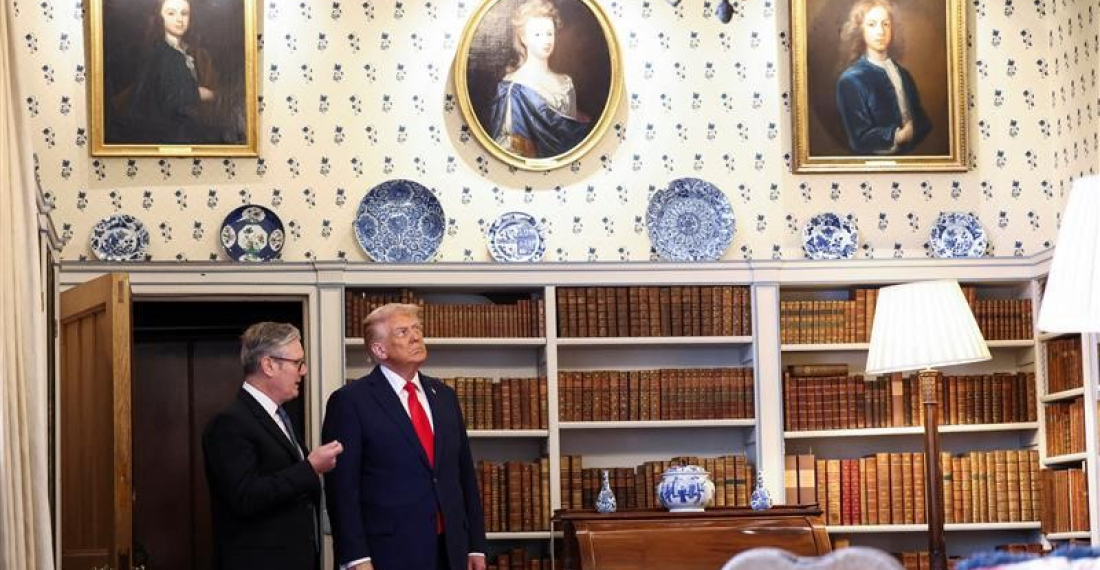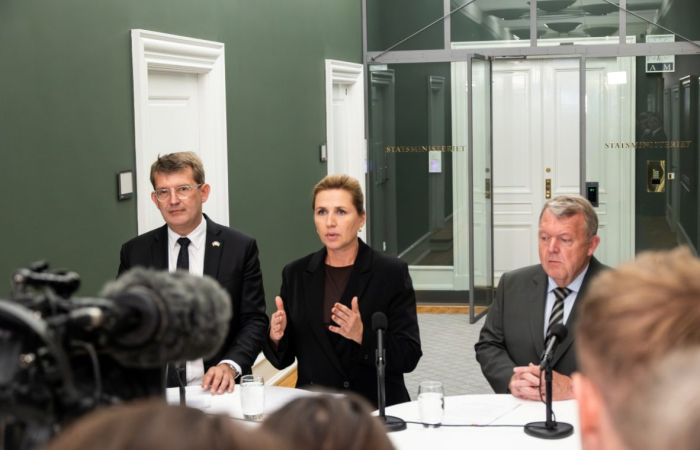US President Donald Trump is meeting UK Prime Minister Keir Starmer on Thursday 18 September, the final day of the U.S. leader’s state visit to the UK with tech investment, steel tariffs and potentially tricky topics on the agenda. The President and first lady Melania Trump were feted by King Charles III and Queen Camilla on Wednesday at Windsor Castle with significant pageantry including gold-trimmed carriages, scarlet-clad soldiers, artillery salutes and a glittering banquet in a grand ceremonial hall.
British officials, according to an AP report, have festooned the trip with the kind of superlatives Trump revels in: It’s an “unprecedented” second state visit for the U.S. leader, featuring the biggest military honor guard ever assembled for such an occasion. On Thursday it is Starmer’s turn to welcome the president to Chequers, a 16th-century manor house northwest of London that serves as a rural retreat for British leaders.
Trump’s British hosts want to celebrate the strength of the U.S-U.K. relationship, almost 250 years after its rocky start in 1776. Trump will be welcomed by ceremonial honor guard complete with bagpipers - a nod to the president’s Scottish heritage - and shown items from the archive of wartime leader Winston Churchill, who coined the term “special relationship” for the bond between the United States and Britain.
To coincide with the visit, Britain said U.S. companies had pledged 150 billion pounds ($204 billion) in investment in the United Kingdom, including 90 billion pounds ($122 billion) from investment firm Blackstone in the next decade. Investment will also flow the other way, including almost $30 billion by pharmaceutical firm GSK in the U.S.
The two leaders will sign a “tech prosperity deal” that U.K. officials say will bring thousands of jobs and billions in investment in artificial intelligence, quantum computing and nuclear energy.
It includes a U.K. arm of Stargate, a Trump-backed AI infrastructure project led by OpenAI, and a host of AI data centers around the U.K. American firms are announcing 31 billion pounds ($42 billion) investment in the U.K.’s AI sector, including $30 billion from Microsoft for protects including Britain’s largest supercomputer.
British officials, quoted by AP, say they have not agreed to scrap a digital services tax or water down internet regulation to get the deal, some details of which have yet to be announced. The British government is learning that when it comes to deals with the U.S. administration, the devil is in the detail. In May, Starmer and Trump struck a trade agreement that reduced U.S. tariffs on Britain’s key auto and aerospace industries.
But talks on slashing duties on steel and aluminium to zero from their current level of 25% have stalled, despite a promise in May that the issue would be settled within weeks.
Starmer wants a successful state visit to balance weeks of bad news that saw him lose not just an ambassador but Deputy Prime Minister Angela Rayner, who quit over a tax error on a home purchase, and a senior aide. Fourteen months after winning a landslide election victory, Starmer’s government is struggling to kickstart Britain’s sluggish economy and his Labour Party is lagging in the polls.
Starmer will be bracing for awkward questions about Jeffrey Epstein when he and Trump hold a news conference at Chequers. Days before the state visit, Starmer fired Britain’s ambassador to the US, Peter Mandelson, over the envoy’s past friendship with the convicted sex offender.
Questions about Epstein overshadowed Trump’s last visit to the U.K. in July, when he sat with Starmer at his golf club in Scotland. As they took questions from journalists, Trump was repeatedly peppered with queries about Epstein as his government faced pressure from back home to release government records into the criminal case of the now-disgraced financier, who authorities say killed himself in 2019.
There are also potentially difficult conversations to be had over Ukraine and the Middle East. Starmer has played a major part in European efforts to shore up U.S. support for Ukraine. Trump has expressed frustration with Russian President Vladimir Putin but has not made good on threats to impose new sanctions on Russia for shunning peace negotiations. As he left Washington for the U.K. on Tuesday, Trump appeared to put the onus on Ukrainian President Volodymyr Zelenskyy, saying, “He’s going to have to make a deal.”
The king gave Trump a gentle nudge in his state banquet speech on the strength of the trans-Atlantic relationship. Charles noted that “as tyranny once again threatens Europe, we and our allies stand together in support of Ukraine, to deter aggression and secure peace.”
Starmer also departs from Trump on Israel’s war in Gaza, and has said the U.K. will formally recognise a Palestinian state at the United Nations later this month. Trump has threatened to penalise Canada during trade negotiations for making a similar move.
Source: commonspace.eu with AP, Reuters and agencies. Photo: President Trump at Chequers with Keir Starmer. Source: Reuters






